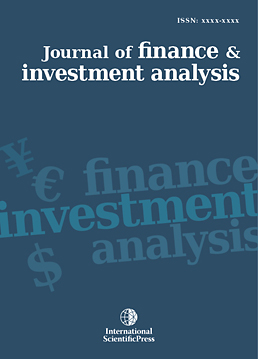Journal of Finance and Investment Analysis
The Relevance of Variance Analysis in Managerial Cost Control
-
 [ Download ]
[ Download ]
- Times downloaded: 19971
-
Abstract
Cost plays a prominent decision making role in the life of an individual and organisation because it is a central focus of daily financial activities. In any financial engagement, usually for a reward, the costs that are incidental to the engagement could be broadly analysed into material, labour and overhead. For an organization to break-even and proceed to record profit, costs must be controlled so that they can be within acceptable limits. This is achieved through setting costs standards and formulated process of comparing the standards against the actual costs, which ordinarily gives rise to variance. One simple question is that: will costs variance analysis be exceptionally relevant irrespective of any standard set? The objectives of the study are to review and analyse literature to find out what constitutes efficient standard in a manufacturing organisation with a view to disclosing realistic variance for management cost control and based on the review and analysis to assess the extent to which costs variance analysis can adequately be useful in controlling costs to provide for improved profit. The study finds that efficient standards are those standards set by the combined effort of operation/technical managers and top management of a manufacturing sector and that the standard to be adopted should be the one that will assist management in attaining its strategic goals with less cost, through effective cost control. The study recommends that realistic standards should be put in place through participation of the operators and top management with a view to achieving optimal results. Besides, all variances falling within the pre defined boundary should be investigated and the report be adequately implemented without delay to guide against future variance.
